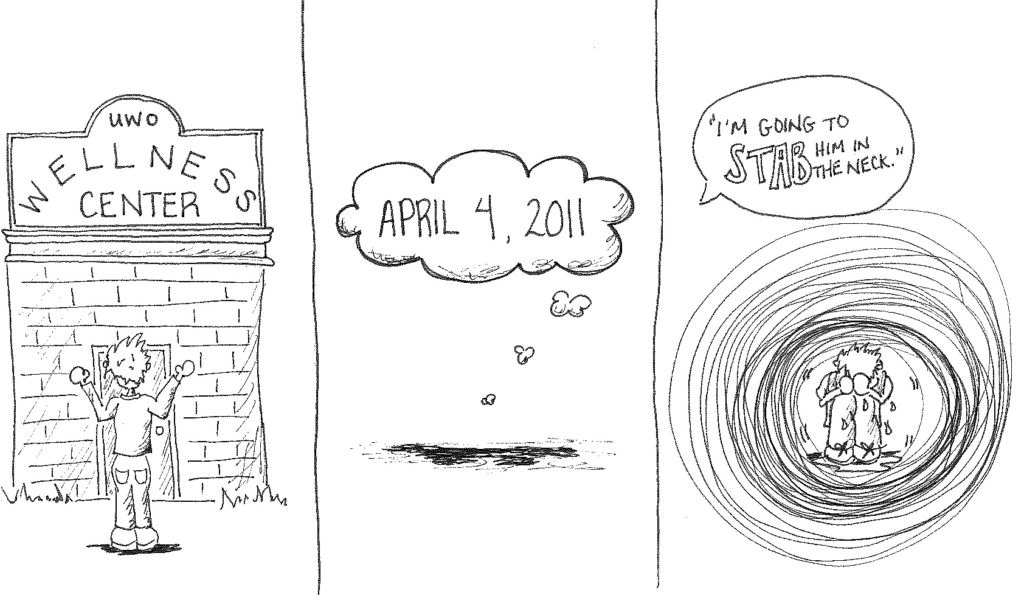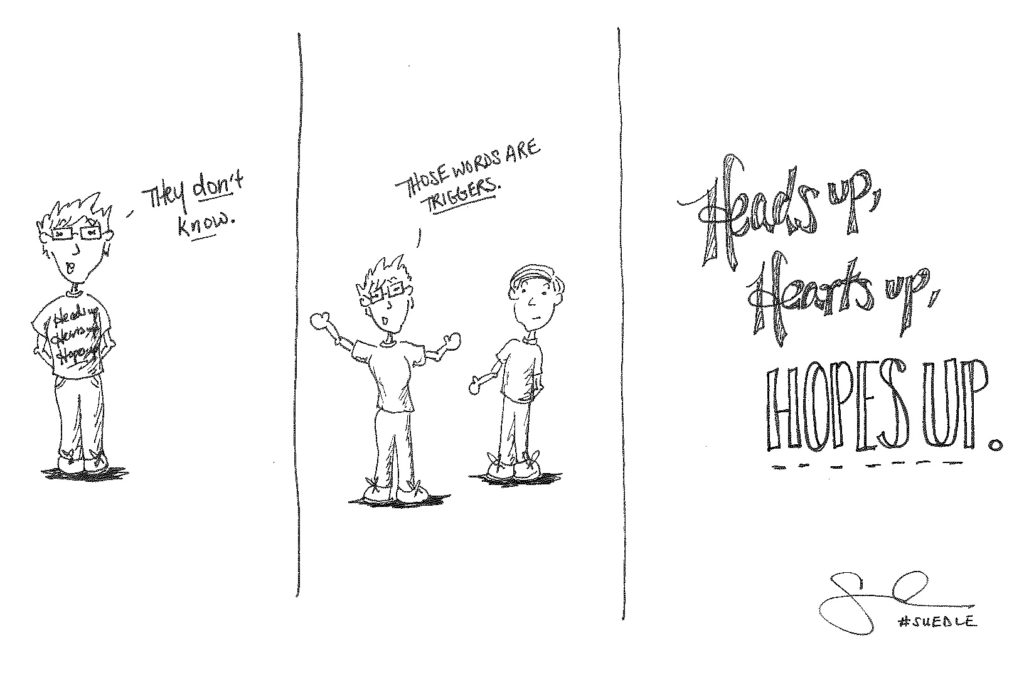by Katy Hamm
I suffer from anxiety and depression.
Statistically that is not an uncommon thing, but there is still a great deal of stigma that presents with identifying with any mental health issue.
My troubles began my freshman year of college, when I found I had a great deal of social anxiety, which brought out my depression. A depression that multiplied after my best friend Emily was killed by a drunk driver that following summer.
I felt alone and didn’t know what to do. Luckily, I had an incredibly supportive mother and fantastic staff at the University of Wisconsin Oshkosh who walked me through every step.
I visited the counseling center to work through the death of my best friend, and I was able to acquire the medication I needed to battle my depression through the health center.
Over my five years at UWO, I formed great relationships with peers and advisors through student organizations, and those relationships were crucial in stabilizing my mental health.
By my senior year, I felt like a new woman, filled with confidence, ready to conquer the world.
Then my life was flipped upside down on on April 4th, 2011, when my partner, Jon, was murdered.
The years of my life following, have been haunted with the trigger words of “stab,” “kill,” “murder” and those like it. (Also, what kind of warning label is “trigger” for those with violence in their history…but, I digress.)

The week of Jon’s death, I was designing a t-shirt in his honor with his last Facebook post on it, “Heads Up, Hearts Up, Hopes Up,” lyrics from the song “The Last Lost Continent” by La Dispute. Jon and I owned a clothing company called Home Sweet Home Clothing together, so it was a fitting way for me to deal with my pain while giving myself and others a way to remember and honor him.
I was working on the shirt in the art lab at my undergrad institution. There were two other women in the room who were talking about someone. One said, “if he does that one more time, I’m going to stab him in the neck.” I ran out of the room crying. Those girls didn’t know that my best-friend and partner had been stabbed in the neck days earlier and lost his life. They didn’t know, but I knew.
THINGS LIKE THIS HAPPEN DAILY.
DAILY!
When I hear those trigger words, I hear Jon’s last ones. The ones recorded on the 911 call I was forced to hear multiple times while at his murderer’s trial. I picture Jon’s mother testifying, his brother crying, his father empty. I picture the evidence, and the look in his killer’s eyes as he walked past Jon’s friends and family. I can’t even imagine what his family members deal with on a daily basis, especially those who were there when it happened.
When these triggers popped up, I kept finding myself saying, “They don’t know.”
But why didn’t they? Because I chose not to say anything?
That’s when I took control. I began telling people about my past, and asking them to watch those words when they were around me. I had to. To stay sane. To get through each day.
Although it began as an act of self-preservation, I quickly noticed the impact sharing my story could have on others.
During my experience in graduate school at St. Cloud State University, I met a student who had also experienced losing someone close to her through an act of senseless violence.
I remember sitting in a meeting filled with myself, this student, and about ten others, one of which began using my trigger words.
I realized that this was not only affecting me, but was affecting others in the room. I interrupted and asked the student to stop. He thought I was joking, and proceeded. I asked again, explaining why those words were triggers for me. The room was silent.
Now, this may not be a shocking reveal, but when you share something so personal, and so traumatizing, it is AWKWARD FOR EVERYONE.
But despite feeling vulnerable and making others slightly uncomfortable, I knew I was making the office a safe space for one person in the room who wasn’t as comfortable as I am in sharing their identity.
The student I interrupted later apologized, thanked me for sharing, and is now one of my best friends.

If you’d like to learn about the Jonathan Kwiatkowski Memorial Scholarship, please visit jkmemorialfund.org.
Originally posted at the Student Affairs Collective on November 13, 2014.
